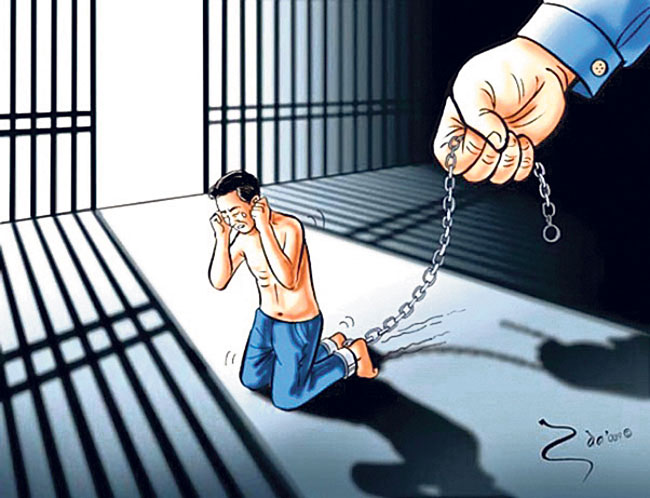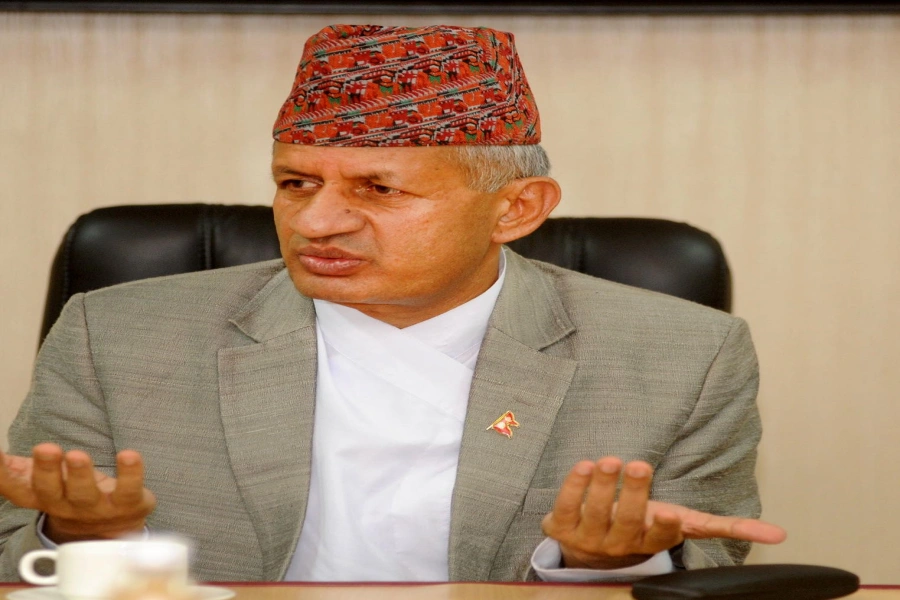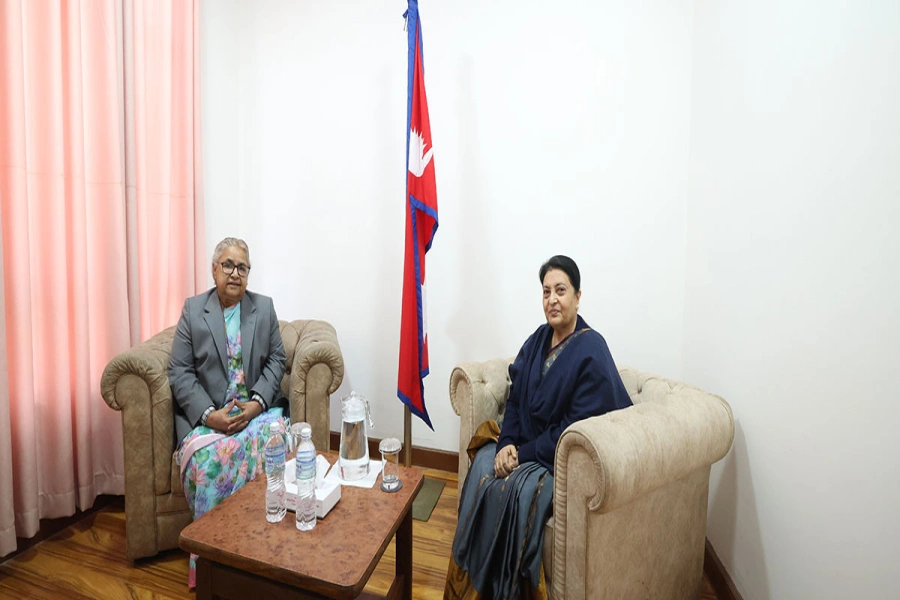The revised criminal code is an attempt toward systematic reform to address torture-related impunity. It should be implemented
Torture, though labelled as inhuman treatment, is still prevalent in Nepal despite the state’s obligation and repeated commitment to prevent it. Nepal is obliged to prevent torture because it has signed and ratified United Nations’ Convention against Torture (CAT) in 1991.
As the world stands in support of victims of torture on June 26 today—the international day in support of the victims of torture—it is significant to review Nepal’s progress in ending torture.
Nepal’s commitment to control the incidence of torture began after a major political upheaval some 27 years ago. Many political leaders became the victims of torture during Panchayat system. When these leaders came to power after 1990’s political change, they pledged to uphold human rights. Soon, freedom from torture was ensured as a fundamental right in the 1990 constitution. For the first time the constitution prohibited “physical or mental torture” and “cruel, inhuman or degrading treatment.”

NHRC urges govt to end torture in custody and prisons

Along with ratification of CAT in 1991, Nepal also enacted the first ever torture-related law—Compensation Relating to Torture Act (CRT) in 1996. This law fell short due to a myriad of reasons.
First, it aimed to provide compensation to the victims of torture but punish the torturers in a limited way. Second, it failed to meet the international norms and standards as envisaged in the CAT. Third, defective criminal justice system led to failure of implementing the law. There is lack of victim and witness protection provisions for torture cases. There is a delayed justice delivery, including the implementation of court decisions. Likewise, there is a clear lack of effective monitoring mechanism and absence of proper investigation into the alleged torture. For instance, the government attorney pleads, and the state provides compensation on behalf of alleged perpetrators.
The aforementioned findings were included in different reports and researches carried out by national and international human rights organizations, including National Human Rights Commission (NHRC) and Office of the United Nations High Commissioner for Human Rights (OHCHR).
Even Universal Periodic Review of 2015 received the criticism from 73 countries for Nepal’s poor human rights record, including the practice of torture. Acknowledging such shortcomings, the state accepted the need for the criminalization and impartial investigation of the acts of torture.
New laws
In response, Nepal has introduced torture under its criminal law through the passage of longstanding bills of Country Criminal Code, Country Criminal Procedure, and Criminal Offence (Determination of Punishment and Implementation) Act in 2017.
The revised Criminal Code that will come into force from August 17 this year includes torture related provisions. For the first time, torture has been taken as a serious crime with the provision of punishment with five years of imprisonment or a fine of Rs 50,000 or both. It has made the special provision for medical examination of torture victims. Unlike the previous law, the new law has provision for the perpetrators to pay the compensation. It has also ensured protection of the victims and witness. The cases of torture cannot be withdrawn once they are registered at the courts. These developments are expected to go a long way in ensuring justice to the victims of torture.
Systematic reforms
The United Nations reports on human rights in Nepal have continuously referred to torture as a systematic problem. Without systematic reforms, it is impossible to end torture. The revised criminal code is an attempt toward the systematic reform to address the torture-related impunity.
On this international day in support of the victims of torture, the human rights community should welcome the government’s move to criminalize torture. Human rights defenders have equally important role to raise awareness about the new provisions and create pressure on the authorities to take sincere efforts in implementing the criminal code.
The security authorities, which have reportedly been restricting the lawyers from accessing the detention centers and talking to the detainees, should also abide by constitutional provisions and the changed law. They should help facilitate state’s human rights obligations.
While this is a milestone achievement toward fulfilling the state’s obligation to end torture, human rights community is still putting an emphasis on passing a separate anti-torture law complaint with the international standards. The bill for the same is pending in the parliament since 2014. Criminalization of torture in the revised Criminal Code could pave the way for ratification of Optional Protocol on Convention Against Torture (OPCAT) and establishing national monitoring mechanism for the detention centers.
The author is an international researcher at The May 18 Memorial Foundation based in Gwangju, South Korea
Twitter: @iprav33n




































